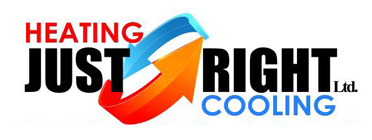
Have you ever performed a double take when you took a look at your last energy bill? Even though high energy bills can be the consequence of intense weather conditions, repeatedly high bills can also suggest an inefficient HVAC system or your home is using too much energy by other means, including drafty windows or inadequate insulation.
One of the easiest ways to figure out whether your home is wasting energy is by calling a home service specialist to perform a home energy audit, also known as a home energy assessment. Keep reading to learn more about home energy audits, including what they are and their advantages.
What Is a Home Energy Audit?
An energy audit is a thorough inspection of how much energy your home uses and whether – and where – your home may be losing or wasting energy. An inspector will review previous energy bills while completing an energy audit to figure out where energy is being consumed and how much.
The overall goal of an energy audit is to help homeowners save money on their energy bills by suggesting energy-efficient updates, which can include exchanging your current HVAC system, putting in new insulation, sealing up leaks, or replacing old windows.
During the energy assessment, the auditor also completes an inspection of the outside and inside of your home. The auditor performs a blower door test on doorways, windows and fireplaces to figure out if there are air leaks in your home. They’ll also evaluate your home’s HVAC system, as well as the ductwork, the water heater, and the insulation in your attic. Exhaustive assessments may also include checking your current lighting system.
Benefits of a Home Energy Audit
It can be hard for the ordinary homeowner to know for certain how efficient their home is compared to other similar homes in their community. However, local energy companies often offer information about where your home ranks in comparison to similar homes and whether it’s more efficient, about average, or inefficient versus your neighbors’ homes. This can be a good starting point to determine if you need an energy audit performed.
Several of the benefits of a home energy audit include:
Understanding How Efficient Your Home Is
It’s beneficial to understand how efficient your home is and where you’re using up the most energy. For example, if your ducts are leaking, it could result in a significant increase in your energy bills and excessive wear and tear on your HVAC system as it has to run longer to completely heat or cool your home.
Making Energy-Efficient Updates
An energy audit will expose where you need to make energy-efficient improvements to save on energy and reduce utility bills. This might include replacing old weatherstripping or getting a new energy-efficient furnace.
Enhancing Health and Safety
Enabling air to slip into your home through doors and windows, or as a result of a lack of insulation can cause extra moisture to appear, which could negatively impact your home’s humidity levels or produce mold. This can lead to health issues, particularly for people suffering from asthma or allergies.
Increasing Your Home’s Retail Value
Energy-efficient homes are sought after by homebuyers. You can sell your home sooner or for more money by demonstrating to potential buyers that it’s energy efficient.
How to Perform an Energy Audit of Your Home
Although performing an energy audit independently might not be as detailed as hiring a professional, it’ll offer a general idea of how energy efficient your home is. If you don’t find any issues during the DIY test, then you potentially don’t need to bring in a professional. Use this step-by-step checklist:
- Inspect your HVAC system. Leaky ducts can lose up to 20% of conditioned air, contributing to higher energy bills and excess wear and tear on HVAC equipment. If you discover leaks, use duct tape to eliminate them. If your HVAC equipment is old and inefficient, upgrading to a new system can save you a considerable amount on your energy bills. In some cases, it might be better to contact a reputable HVAC company to inspect your system.
- Check for air leaks. Air leaks on average can raise your energy bills by 10 to 20%. Inside, look for air leaks in areas where there is a draft, including along the edge of flooring and close to baseboards and electrical outlets. Outside, you can inspect for air leaks in the home’s foundation, siding and mortar. Plug, caulk or seal any air leaks to save money.
- Examine insulation. If your home is older, it could mean your insulation is too. If you can see the joists, you likely need more insulation.
- Check the ventilation. Check that all of your kitchen and bathroom exhaust fans are spinning properly, and check for evidence of rot or moisture.
Contact Just Right Heating and Cooling for a Professional Energy Audit
If you are interested in professional help finding out how energy efficient your heating and cooling equipment is, call the HVAC experts at Just Right Heating and Cooling today. We’ve proudly served the residents of Goshen with quality home services for a long time. Contact us today to schedule an appointment.


